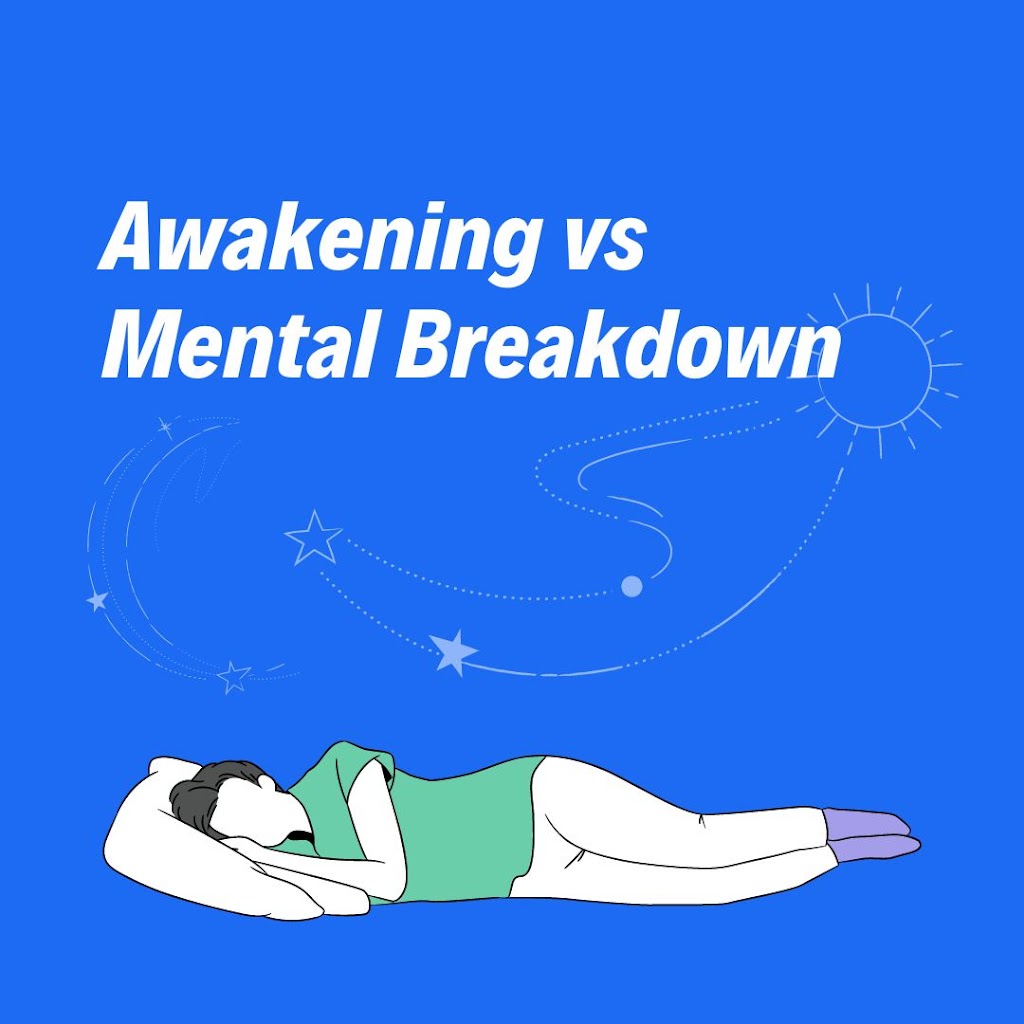
Difference between Awakening and Mental Breakdown
 |
| Difference Between Awakening and Mental Breakdown
The concepts of an awakening and a mental breakdown are often confused because they can involve intense psychological experiences, but they are fundamentally different in nature, origin, and outcomes. Understanding these differences can help one discern which they might be experiencing.
AwakeningDefinition:
An awakening, often referred to as a spiritual awakening, is a profound shift in consciousness. It involves becoming aware of deeper realities, transcending ego, and experiencing a sense of unity with the universe.
Characteristics:– Increased Awareness: Heightened perception and awareness of self and surroundings.
– Inner Peace: A deep sense of peace and contentment, even in challenging situations.
– Sense of Connection:Feeling a strong connection to others, nature, or a higher power.
– Purpose and Meaning: A newfound sense of purpose and meaning in life.
– Positive Changes: Lasting positive changes in behavior, relationships, and lifestyle.
– Insight and Clarity: Clear insights into one’s own mind, behavior patterns, and life.
Symptoms:– Emotional highs and lows.
– Increased sensitivity to the environment.
– Desire for solitude and introspection.
– Enhanced intuition and creativity.
Mental BreakdownDefinition:A mental breakdown, also known as a nervous breakdown, is a period of intense mental distress. It often involves an inability to function in daily life due to overwhelming stress, anxiety, or depression.
Characteristics:
– Overwhelming Stress:** Inability to cope with stressors, leading to extreme emotional distress.
– Impaired Functioning:** Difficulty performing daily tasks and fulfilling responsibilities.
– Disorientation:** Feelings of confusion and disorientation.
– Emotional Instability:** Intense and uncontrollable emotions such as sadness, anger, or fear.
– Withdrawal:** Social withdrawal and isolation from friends, family, and activities.
– Physical Symptoms:** Symptoms such as fatigue, insomnia, headaches, and changes in appetite.
Symptoms:– Panic attacks or severe anxiety.
– Depressive episodes, including suicidal thoughts.
– Paranoia or irrational fears.
– Psychosomatic symptoms like stomach aches or chest pain.
How to Tell the DifferenceKey Differentiators:– Nature of the Experience:
– Awakening: Generally brings a sense of clarity, expanded awareness, and positive transformation.
– Breakdown: Characterized by confusion, disorientation, and emotional turmoil.
– Outcome: – Awakening: Leads to long-term positive changes, increased resilience, and a deeper understanding of oneself and the world.
– Breakdown: Often requires professional intervention and can result in negative consequences if not treated.
-Emotional State: – Awakening: Despite fluctuations, there’s an underlying sense of peace and connection.
– Breakdown: Persistent emotional distress and inability to find relief.
-Functioning: – Awakening: Functioning might be temporarily disrupted but often improves as the person integrates new insights.
– Breakdown: Significant impairment in daily functioning and coping abilities.
Seeking Help and Support– Professional Guidance: – If you suspect a mental breakdown, it’s crucial to seek professional help from a therapist, counselor, or psychiatrist.
– For an awakening, guidance from a spiritual mentor or counselor can be beneficial.
– Self-Care Practices: – Both situations benefit from self-care practices such as meditation, mindfulness, healthy eating, regular exercise, and sufficient rest.
– Support System: – Engage with supportive friends, family, or support groups who can provide understanding and empathy.
ConclusionDistinguishing between an awakening and a mental breakdown involves careful observation of one’s experiences and emotional state. If you’re unsure, consulting with a mental health professional is always a prudent step. They can help you navigate these experiences and provide the appropriate support and guidance.
|
For more information visit ; NIH





